Dealing with Insomnia Caused by Zoloft
Depression and anxiety are the two most common mental health disorders plaguing adults. These conditions are marked by feelings of sadness, hopelessness, and loss of interest in people and activities that once made you happy. Other symptoms include a change in appetite, low self-esteem, and insomnia.
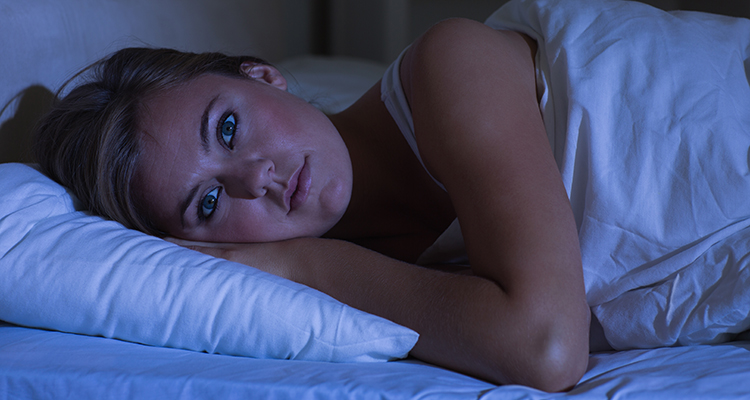
Many people turn to medication in an effort to ease these symptoms and live a productive, meaningful life. Zoloft is one such medication. While this antidepressant may be effective at reducing depression symptoms, it can also have unpleasant side effects, including insomnia.
Here we’ll take a closer look at Zoloft, including how it works to treat depression, why it may cause insomnia in some users, and ways to combat these effects.
Content
What is Zoloft?
Zoloft is a selective serotonin reuptake inhibitor, or SSRI used to treat depression and other mental health disorders including OCD, PTSD, social anxiety disorder, and panic disorder. SSRIs like Zoloft help restore the balance of certain chemicals in the brain including serotonin. Serotonin is responsible for feelings of happiness, calm, and relaxation. Zoloft works to increase serotonin levels which, in turn, reduces feelings of anxiety and depression.
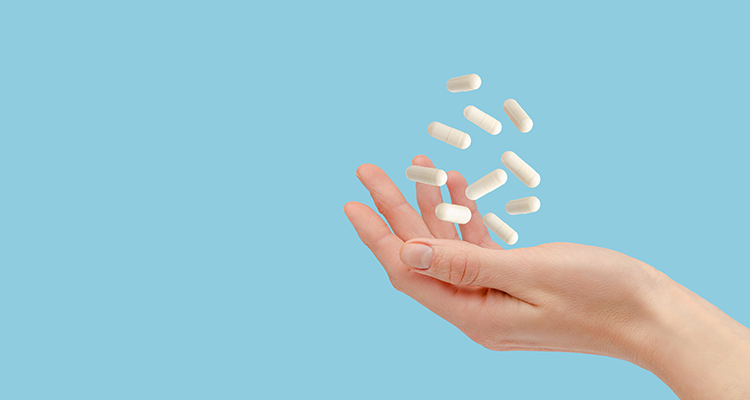
In addition, Zoloft may improve your overall mood, appetite, energy levels, and sleep patterns. Users report having fewer unwanted thoughts, less fear and anxiety, and fewer panic attacks. In those with OCD, Zoloft can help reduce your urge to repeat certain tasks and perform ritualistic behaviors.
While some users report sleep disturbances while taking Zoloft, others experience improved sleep as depression and anxiety symptoms lessen.
How to Use Zoloft
As with any medication or antidepressant, it’s important you only take Zoloft as recommended. This antidepressant is normally taken orally once daily, either in the morning or evening. If you’re having trouble sleeping, it’s best to take your dosage in the morning to prevent sleep disturbances.
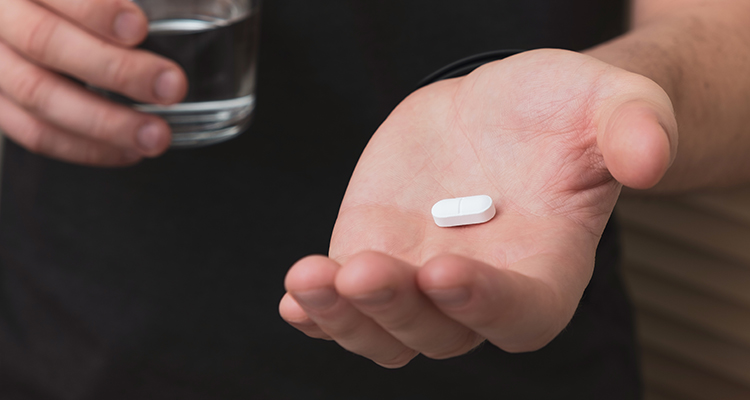
Zoloft is available in both liquid and tablet form. The tablet form should be taken with food, whereas liquid Zoloft must be mixed with another liquid before consuming it. Water, orange juice, lemonade, ginger ale, or lemon-lime soda are best. Always take the recommended amount and measure it carefully to prevent an overdose or unwanted side effects. That means using a medicine dropper and not a household spoon. Drink the mixture immediately and avoid preparing a supply in advance which may cause the liquid to separate and interfere with the medication’s effects.
To prevent unwanted side effects like insomnia, your doctor may start you off on a low dose of Zoloft to see how your body reacts. It may take some time for you to notice a difference. To get the most benefits, take Zoloft at the same time each day, every day. As with most antidepressants, it’s dangerous to stop taking Zoloft abruptly. Not only can your condition worsen, but you may experience withdrawal symptoms including headaches, mood swings, and sleep changes. Gradually lowering your dose can help reduce the risk of withdrawal symptoms.
Side Effects of Zoloft
Even when taken as directed, Zoloft can cause side effects in certain people. These include, but aren’t limited to:
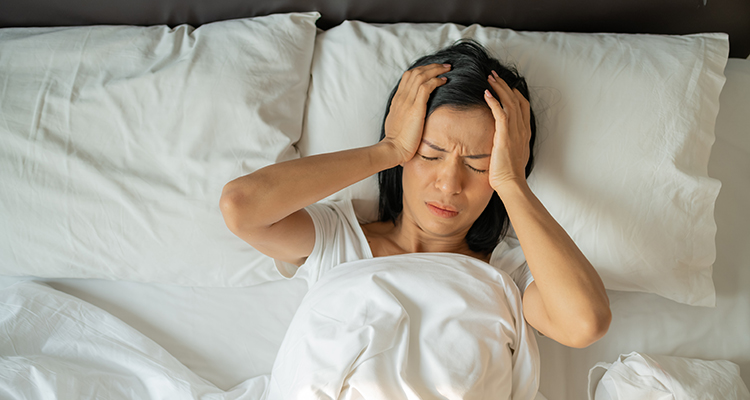
- Nausea
- Dizziness
- Sweating
- Dry mouth
- Upset stomach/diarrhea
- Loss of appetite
- Trouble sleeping
Antidepressants like Zoloft are prescribed when your doctor believes the benefits outweigh the risks, but this may not be the case for everyone. Serious side effects include muscle cramps or weakness, decreased interest in sex, shaking, weight loss, irregular heartbeat, bloody stools, and vision changes.
Zoloft and other SSRIs increase your body’s serotonin levels. In rare cases, some patients suffer from serotonin syndrome. This occurs when your body has dangerously high levels of serotonin. In small doses, serotonin can reduce depression and anxiety while improving your mood and helping you sleep better. But too much serotonin can cause extreme nerve cell activity. Symptoms include confusion, headaches, dilated pupils, nausea, vomiting, agitation, sweating, and loss of muscle control. In severe cases, patients may pass out, experience seizures, or have an uneven heartbeat.
Zoloft and Insomnia
Insomnia is a common side effect of not just Zoloft but most SSRIs. These antidepressants are designed to alter your body’s natural chemical production. By increasing the level of serotonin in your brain, users experience fewer depressive thoughts and emotions. Higher levels of serotonin help trigger feelings of happiness and well-being. Unfortunately, any time you alter your brain’s activity or chemical production, it can negatively impact your sleep cycles — specifically your circadian rhythm and REM sleep.
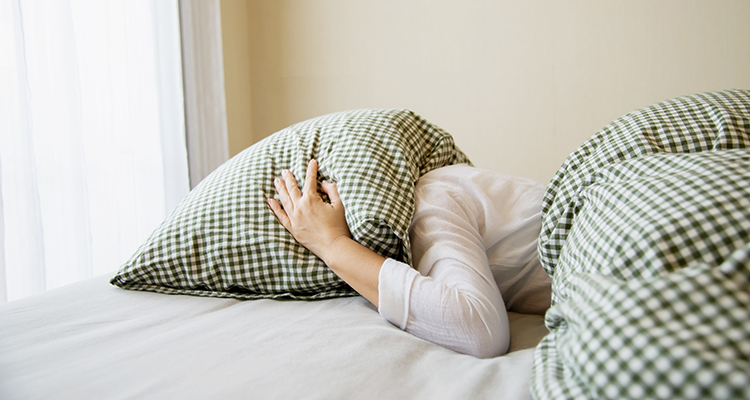
In the same way that Zoloft works differently for everyone when treating depressive disorders, it can interfere with sleep patterns in different ways too. One study reports that 20% of Zoloft users experience insomnia symptoms. For some, these symptoms are short-term and improve with time while others struggle to sleep for several months to a year. If the latter describes you, you may want to consider an alternative medication.
It’s important to note that without an antidepressant, depressive disorders can also cause insomnia. Racing thoughts, mood swings, and anxiety can all make it impossible to fall and stay asleep. That’s why some people cope with the side effects of Zoloft as an alternative to chronic insomnia. On the flip side, Zoloft may worsen insomnia symptoms despite its ability to reduce depression and anxiety. Taking Zoloft for depression in the face of sleep troubles is an individual choice.
Coping with Insomnia Caused by Zoloft
If you and your doctor determine that Zoloft is the best treatment for your depression, but you’re still struggling to fall and stay asleep, there are a few things you can do. You don’t have to forgo the benefits of Zoloft to achieve a quality night’s sleep.

Here are a few options for insomnia treatment at home that can help combat sleep disturbances caused by Zoloft. The best part is, some of these at-home remedies may also ease depression symptoms, giving you an overall better quality of life.
Exercise Daily
Daily exercise and physical activity can not only combat insomnia symptoms but may also ease depression and anxiety. Engaging in physical activity triggers the release of endorphins in your brain including dopamine and, you guessed it, serotonin! These endorphins help ease anxiety, increase your mood, and promote relaxation.
In addition to a mood boost, regular exercise will help you feel more tired at night and prepared for sleep. Exercising too close to bedtime may cause you to feel overly energized and alert. Try exercising in the morning as a way to improve your overall mind frame and increase motivation. By the end of the day, you’ll feel productive, purposeful, and exhausted, making it easier to fall and stay asleep.
Perform a Nighttime Routine
We’re creatures of habit and thrive on routine. By establishing a nighttime routine, you’ll help balance your body’s circadian rhythm which may be thrown off balance as your body adjusts to a new medication like Zoloft.
Perform the same relaxing activities before bed each night. Things like meditating, taking a soothing bath, or reading from a book can all help you prepare for sleep. Avoid reading on a Kindle or using your smartphone or television. The blue light from these digital devices may prevent your brain from releasing the sleep hormone melatonin.
If you’re currently taking Zoloft for depression and are also experiencing insomnia symptoms, try taking your medicine in the morning. This may prevent unwanted side effects. Just think of it as another small part of establishing a positive sleep routine.
Establish a Sleep Schedule
One reason Zoloft may cause insomnia is that it alters your brain and body chemistry, which may also interfere with your sleep/wake cycle. The best way to support a healthy circadian rhythm is to set a consistent sleep schedule and stick to it.
Start by going to bed around the same time each night and waking at the same every morning. This includes weekends, holidays, and when you’re on vacation. Of course, this won’t always be possible but try sticking to it as closely as you can. Over time, your body will start to get tired around the same time every night. You may also find yourself waking up in the morning without an alarm.
These are all signals that your sleep schedule is working and your circadian rhythm is properly balanced.
Avoid Unhealthy Habits
Certain unhealthy habits can aggravate insomnia symptoms while taking Zoloft. Drinking alcohol in excess or consuming caffeinated beverages too close to bedtime can interfere with your sleep patterns and cause you to wake frequently.
Other unhealthy behaviors like smoking cigarettes or eating large meals before bed can also cause sleep disturbances. The nicotine found in cigarettes is a stimulant. Eating large meals before bed triggers your body to be alert in order to digest your food properly. Heavy meals can cause gastrointestinal issues like heartburn, gas, and nausea.
Practice Meditation and Mindfulness
Meditation and mindfulness can not only reduce stress and anxiety but also improve sleep. Meditation helps you clear your mind and purge negative thoughts and feelings. Perform a short meditation in the morning and at night to help promote relaxation and positivity.
Mindfulness, on the other hand, helps you become more aware of your thoughts and feelings and how they affect you. By doing so, you can reduce feelings of negativity and anxiety. In time, you may not only decrease depressive symptoms but also improve your sleep.
Say Goodbye to Depression and Hello to Sleep!
Zoloft is a common medication used to treat a host of mental health disorders including depression, anxiety, OCD, and PTSD. By increasing serotonin levels, users experience improved moods and reduced depression symptoms. Unfortunately, some users also have trouble sleeping.
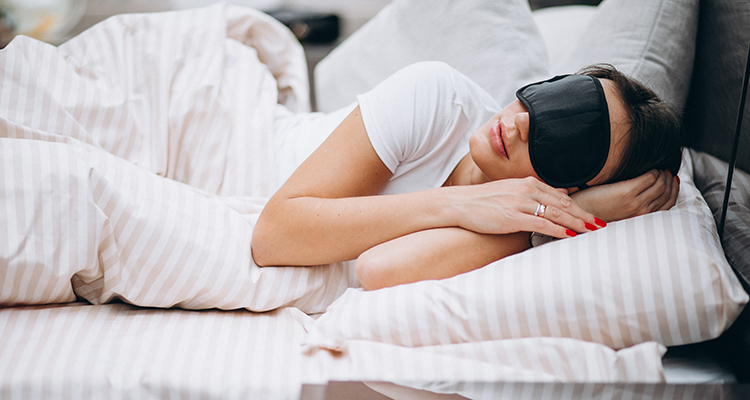
With the right approach, you can experience the benefits of Zoloft as well as reduce insomnia and depression symptoms. As with any medication, talk to a healthcare professional about your options and any serious side effects.
In addition to the abovementioned tips for improving sleep quality, an online insomnia treatment program like Somnus Therapy can support your efforts even in the face of Zoloft-induced insomnia. Using a combination of CBT-i, mindfulness, and community support, you can finally achieve the blissful night’s sleep you deserve, with the added bonus of reduced stress and anxiety.














